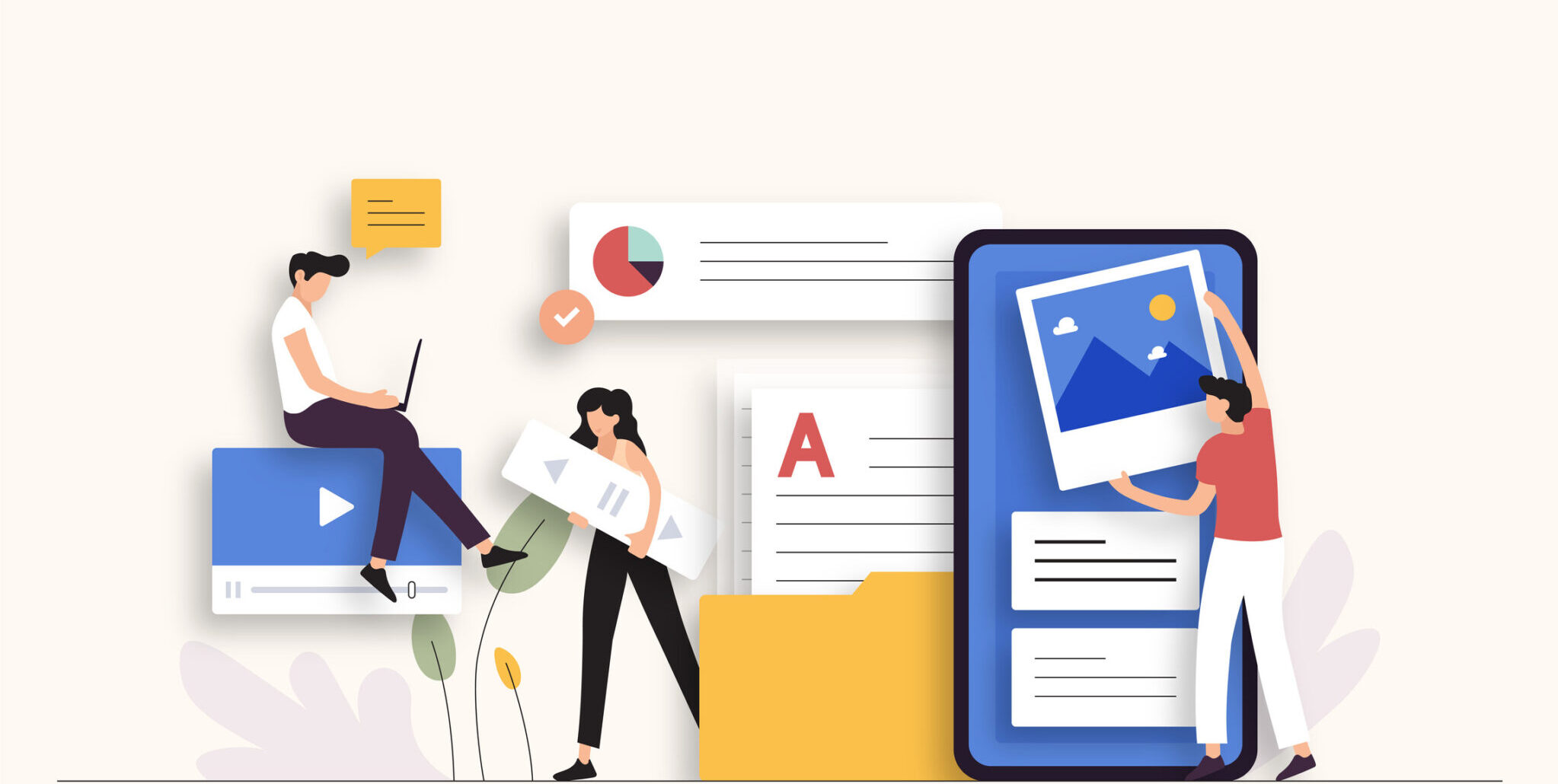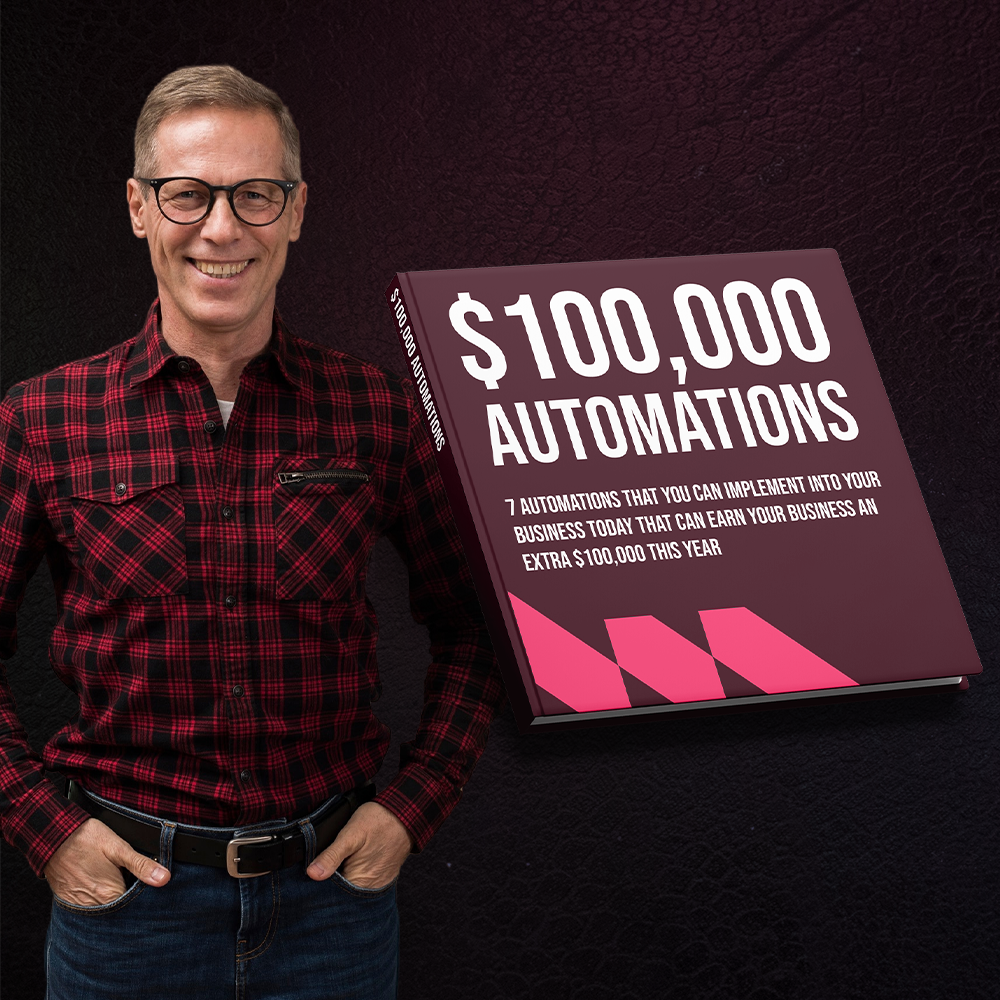AI Music Selling Blueprint Review

AI Music Selling Blueprint
-
Table of Contents
- Introduction
- Artificial Intelligence in Music Production
- How AI is Revolutionizing the Music Industry
- The Future of AI in Music Creation
- Using AI to Sell Music Online
- AI Music Selling Strategies
- Maximizing Profits with AI in Music Sales
- Implementing AI in Your Music Selling Business
- AI Tools for Music Marketing
- Leveraging AI for Music Distribution
- The Impact of AI on Music Sales
- AI Music Selling Platforms
- AI Technology for Music Promotion
- Enhancing Music Sales with AI Algorithms
- AI Trends in Music Selling
- Monetizing Your Music with AI Technology
- Conclusion
Introduction
The AI Music Selling Blueprint is a comprehensive guide designed to help musicians navigate the digital landscape and effectively sell their music online. This blueprint covers everything from creating a strong online presence to leveraging AI technology to reach a wider audience and increase sales. Whether you’re a seasoned musician or just starting out, this blueprint will provide you with the tools and strategies you need to succeed in the competitive music industry.
Artificial Intelligence in Music Production
Have you ever wondered how artificial intelligence (AI) is revolutionizing the music industry? From creating personalized playlists to composing original music, AI is changing the way we interact with music in ways we never thought possible. In this article, we will explore the AI music selling blueprint and how it is shaping the future of music production.
One of the most exciting developments in AI music production is the ability to generate music automatically. AI algorithms can analyze vast amounts of data to create unique compositions that cater to individual tastes. This has opened up a whole new world of possibilities for musicians and producers looking to push the boundaries of creativity.
Imagine being able to input a few parameters into a computer program and have it generate a fully produced track in minutes. This is the power of AI in music production. Not only does it save time and effort, but it also allows artists to experiment with different styles and genres without the need for a full band or studio setup.
But AI isn’t just limited to creating music. It can also help artists sell their music more effectively. By analyzing data on listener preferences and behavior, AI can recommend songs and albums to users based on their individual tastes. This personalized approach to music selling can help artists reach a wider audience and increase their sales.
Another way AI is revolutionizing music selling is through the use of predictive analytics. By analyzing trends in music consumption and sales data, AI can help artists identify opportunities for growth and tailor their marketing strategies accordingly. This data-driven approach can help artists make informed decisions about where to focus their efforts and resources.
In addition to helping artists sell their music, AI can also assist in the production process itself. By analyzing audio files and identifying patterns in sound, AI algorithms can help producers mix and master tracks more efficiently. This can save time and money, allowing artists to focus on the creative aspects of music production.
But perhaps the most exciting aspect of AI in music production is its potential to push the boundaries of creativity. By analyzing vast amounts of data on music theory and composition, AI algorithms can help artists explore new sounds and styles that they may not have considered before. This can lead to groundbreaking innovations in music that push the boundaries of what is possible.
In conclusion, the AI music selling blueprint is revolutionizing the way artists create, sell, and produce music. From generating unique compositions to analyzing listener data, AI is changing the way we interact with music in ways we never thought possible. By embracing this technology, artists can unlock new opportunities for growth and creativity in the ever-evolving music industry. So, if you’re an artist looking to take your music to the next level, consider incorporating AI into your music production process. Who knows what groundbreaking innovations you may discover along the way!
How AI is Revolutionizing the Music Industry
Have you ever wondered how artificial intelligence (AI) is changing the music industry? Well, wonder no more because AI is revolutionizing the way music is created, produced, and sold. In this article, we will explore the AI music selling blueprint and how it is transforming the music business as we know it.
One of the most significant ways AI is impacting the music industry is through its ability to analyze data and predict trends. By analyzing vast amounts of data, AI can identify patterns and trends that humans may overlook. This allows music producers and artists to create music that is more likely to resonate with their target audience. AI can also help artists understand their fan base better and tailor their marketing strategies accordingly.
Another way AI is changing the music industry is through its ability to generate music. AI algorithms can now compose music that sounds like it was created by a human. This has opened up new possibilities for artists who may not have formal training in music composition. AI-generated music can be used in a variety of ways, from background music for videos to creating entire albums.
AI is also revolutionizing the way music is sold. With the rise of streaming services like Spotify and Apple Music, AI algorithms are being used to recommend music to users based on their listening habits. This personalized approach to music discovery has led to an increase in music consumption and has helped artists reach new audiences.
In addition to recommending music, AI is also being used to predict which songs will be hits. By analyzing factors like tempo, key, and lyrics, AI algorithms can predict which songs are likely to top the charts. This information can be invaluable to music producers and artists who are looking to create music that will resonate with a wide audience.
AI is also changing the way music is marketed and promoted. By analyzing social media data, AI algorithms can identify influencers who are likely to have a significant impact on a song’s success. This information can help artists and music labels target their marketing efforts more effectively and reach a larger audience.
Overall, AI is revolutionizing the music industry in ways we never thought possible. From analyzing data and predicting trends to generating music and recommending songs, AI is changing the way music is created, produced, and sold. As technology continues to advance, we can expect even more innovations in the music industry thanks to AI.
In conclusion, the AI music selling blueprint is transforming the music business in ways we never thought possible. By harnessing the power of AI, artists and music producers can create music that resonates with their audience, predict which songs will be hits, and reach new audiences through personalized marketing strategies. As technology continues to evolve, we can expect even more exciting developments in the music industry thanks to AI. So, buckle up and get ready for a musical revolution like never before!
The Future of AI in Music Creation
Have you ever wondered how artificial intelligence (AI) is changing the music industry? Well, you’re not alone. AI has been making waves in the world of music creation, and it’s only getting started. From composing to producing, AI is revolutionizing the way we make and consume music.
One of the most exciting developments in AI music creation is the ability to generate original compositions. With the help of machine learning algorithms, AI can analyze vast amounts of music data and create new melodies and harmonies that sound like they were composed by a human. This opens up a world of possibilities for musicians and producers looking to expand their creative horizons.
But AI isn’t just limited to composing music. It can also help with the production process. AI-powered tools can analyze audio tracks and suggest improvements to the mix, helping to create a more polished and professional sound. This can save musicians and producers valuable time and energy, allowing them to focus on the creative aspects of their work.
In addition to composing and producing music, AI is also changing the way music is marketed and sold. With the rise of streaming services and digital platforms, musicians are constantly looking for new ways to reach their audience and generate revenue. AI can help with this by analyzing listener data and predicting trends, allowing musicians to tailor their marketing strategies to better connect with their fans.
One of the most exciting applications of AI in music marketing is the use of personalized recommendations. By analyzing a listener’s listening habits and preferences, AI can suggest new music that they are likely to enjoy. This not only helps musicians reach new audiences but also helps listeners discover new music that they may not have found otherwise.
But how can musicians and producers take advantage of these AI-powered tools? One way is to partner with companies that specialize in AI music technology. These companies can provide musicians with access to cutting-edge tools and resources that can help them create, produce, and market their music more effectively.
Another option is to invest in AI technology yourself. There are a growing number of AI-powered tools and software programs available that can help musicians and producers take their music to the next level. By incorporating AI into your workflow, you can streamline your creative process and unlock new possibilities for your music.
In conclusion, AI is changing the music industry in exciting ways. From composing to producing to marketing, AI is revolutionizing the way we create and consume music. By embracing AI technology, musicians and producers can unlock new creative possibilities and reach new audiences. The future of AI in music creation is bright, and the possibilities are endless.
Using AI to Sell Music Online
So you’ve got some killer tunes and you’re ready to share them with the world. But how do you go about selling your music online in a way that will actually make you some money? Well, lucky for you, we live in the age of artificial intelligence, and there are plenty of tools and strategies you can use to boost your music sales.
One of the first things you’ll want to do is make sure your music is available on all the major streaming platforms. This might seem obvious, but you’d be surprised how many artists overlook this step. By getting your music on Spotify, Apple Music, and other popular platforms, you’ll be able to reach a much larger audience than if you were just selling your music on your own website.
But simply having your music available on these platforms isn’t enough. You’ll also want to make sure your music is discoverable. This is where AI can really come in handy. By using AI-powered tools like music recommendation algorithms, you can increase the chances of your music being recommended to listeners who are likely to enjoy it. This can help you reach new fans and increase your sales.
Another way AI can help you sell your music online is by analyzing data. By tracking things like how many times your songs are streamed, where your listeners are located, and what other artists they listen to, you can gain valuable insights that can help you tailor your marketing efforts. For example, if you notice that a lot of your listeners are located in a certain city, you might want to consider targeting your advertising efforts there.
AI can also help you personalize your marketing efforts. By using tools like chatbots and email marketing platforms that are powered by AI, you can create more targeted and engaging campaigns that are more likely to convert listeners into paying customers. For example, you could use AI to send personalized emails to fans who have listened to your music a certain number of times, offering them a discount on your latest album.
Of course, selling music online isn’t just about using AI tools. You’ll also want to make sure you’re engaging with your fans and building a strong online presence. This means being active on social media, responding to comments and messages, and creating engaging content that will keep your fans coming back for more.
One final tip for selling your music online using AI is to collaborate with other artists. By teaming up with other musicians who have a similar sound or fan base, you can reach a larger audience and increase your sales. You could even use AI to help you find the perfect collaborators by analyzing data on other artists’ music and fan bases.
In conclusion, selling your music online can be a daunting task, but with the help of AI, you can increase your chances of success. By making sure your music is available on all the major streaming platforms, using AI tools to make your music more discoverable, analyzing data to tailor your marketing efforts, personalizing your marketing campaigns, engaging with your fans, and collaborating with other artists, you can create a solid blueprint for selling your music online. So what are you waiting for? Get out there and start selling your music with the help of AI!
AI Music Selling Strategies
So you’ve created some amazing music using AI technology, and now you’re wondering how to sell it. Well, you’re in luck because I’ve got the perfect blueprint for you to follow. Selling music in today’s digital age can be a daunting task, but with the right strategies in place, you can reach a wider audience and make some serious cash.
First and foremost, you need to have a solid online presence. This means creating a website or social media profiles where you can showcase your music and interact with your fans. Make sure your website is easy to navigate and visually appealing, and don’t forget to include a bio and links to your music on streaming platforms.
Next, you’ll want to focus on building a strong brand. This means creating a unique identity for yourself as an artist and consistently promoting that identity across all of your marketing channels. Think about what sets you apart from other musicians and use that to your advantage.
Once you have your online presence and brand established, it’s time to start promoting your music. One of the best ways to do this is through social media. Use platforms like Instagram, Facebook, and Twitter to share snippets of your music, behind-the-scenes footage, and updates on upcoming releases. Engage with your followers and build a community around your music.
Another effective way to promote your music is through collaborations. Reach out to other musicians, producers, and influencers in your genre and see if they’d be interested in working with you. Collaborations can help you reach new audiences and gain credibility in the industry.
In addition to promoting your music online, you should also consider performing live. Whether it’s at local venues, music festivals, or even virtual concerts, live performances can help you connect with fans on a deeper level and showcase your talent to a wider audience.
When it comes to actually selling your music, there are a few different options to consider. You can release your music on streaming platforms like Spotify, Apple Music, and Tidal, where fans can listen for free or purchase downloads. You can also sell physical copies of your music, such as CDs or vinyl records, through your website or at live shows.
If you’re looking to maximize your profits, you might want to consider selling merchandise as well. T-shirts, hats, posters, and other branded items can be a great way to generate additional income and promote your music at the same time.
Finally, don’t forget to track your sales and marketing efforts. Use analytics tools to monitor your website traffic, social media engagement, and music streams. This data can help you identify what’s working and what’s not, so you can adjust your strategies accordingly.
In conclusion, selling music as an AI artist doesn’t have to be overwhelming. By following this blueprint and staying consistent with your efforts, you can build a successful music career and reach a wider audience than ever before. Good luck!
Maximizing Profits with AI in Music Sales
So you’ve got your music ready to go, and you’re looking to maximize your profits in the ever-evolving music industry. One way to do that is by utilizing artificial intelligence (AI) to help sell your music. AI has revolutionized many industries, and the music industry is no exception. With the right strategies in place, you can leverage AI to reach a wider audience, increase sales, and ultimately make more money from your music.
One of the key ways AI can help you sell your music is through personalized recommendations. AI algorithms can analyze data on your listeners’ preferences and behaviors to suggest music that they are likely to enjoy. By providing personalized recommendations, you can increase the chances of your music being discovered by new listeners who are more likely to become fans and purchase your music.
Another way AI can help you sell your music is by optimizing your marketing efforts. AI can analyze data on your target audience and help you create targeted marketing campaigns that are more likely to resonate with your audience. By using AI to optimize your marketing efforts, you can reach more potential fans and increase your chances of converting them into paying customers.
AI can also help you streamline your sales process. By using AI-powered chatbots, you can provide instant customer support to your fans and answer their questions in real-time. This can help you provide a better customer experience and increase the likelihood of making a sale. Additionally, AI can help you automate tasks such as order processing and inventory management, freeing up your time to focus on creating music and growing your fan base.
In addition to using AI to sell your music, you can also leverage AI to create new revenue streams. For example, you can license your music to AI-powered platforms that use your music in their algorithms to create personalized playlists for their users. By licensing your music to these platforms, you can reach a wider audience and generate additional income from your music.
Overall, AI can be a powerful tool for maximizing profits in the music industry. By using AI to personalize recommendations, optimize marketing efforts, streamline sales processes, and create new revenue streams, you can increase your sales and ultimately make more money from your music. So if you’re looking to take your music sales to the next level, consider incorporating AI into your strategy and watch your profits soar.
Implementing AI in Your Music Selling Business
So you’ve decided to take the plunge and incorporate AI into your music selling business. Congratulations! This decision could potentially revolutionize the way you sell music and connect with your audience. But where do you start? How do you implement AI effectively to maximize your sales and reach? In this article, we’ll walk you through a blueprint for successfully integrating AI into your music selling business.
The first step in implementing AI in your music selling business is to identify your goals. What do you hope to achieve by incorporating AI? Are you looking to increase sales, improve customer engagement, or streamline your processes? Once you have a clear understanding of your objectives, you can begin to explore the various AI tools and technologies available to help you achieve them.
One of the most common uses of AI in the music industry is for personalized recommendations. By analyzing customer data and behavior, AI can help you suggest music that is tailored to each individual’s preferences. This can lead to increased sales and customer satisfaction, as customers are more likely to purchase music that aligns with their tastes.
Another way to implement AI in your music selling business is through chatbots. Chatbots can provide instant customer support, answer questions, and guide customers through the purchasing process. This can help you provide a seamless and efficient experience for your customers, leading to higher conversion rates and customer loyalty.
In addition to personalized recommendations and chatbots, AI can also be used to analyze trends and predict future sales. By analyzing data from past sales and customer behavior, AI can help you identify patterns and make informed decisions about inventory, pricing, and marketing strategies. This can give you a competitive edge in the market and help you stay ahead of the curve.
When implementing AI in your music selling business, it’s important to choose the right tools and technologies for your specific needs. There are a wide variety of AI solutions available, ranging from simple recommendation engines to complex predictive analytics platforms. Take the time to research and evaluate different options to find the ones that best align with your goals and budget.
Once you have selected the right AI tools for your business, it’s time to integrate them into your existing systems and processes. This may require some technical expertise, so don’t hesitate to seek help from experts or consultants if needed. Make sure to train your staff on how to use the new AI tools effectively, and monitor their performance to ensure they are delivering the desired results.
As you begin to implement AI in your music selling business, remember that it’s a journey, not a destination. Continuously monitor and evaluate the performance of your AI tools, and be willing to make adjustments as needed. Stay up to date on the latest trends and developments in AI technology, and be open to experimenting with new strategies and approaches.
By following this blueprint for implementing AI in your music selling business, you can unlock new opportunities for growth and success. Embrace the power of AI and watch as it transforms the way you sell music and connect with your audience. Good luck!
AI Tools for Music Marketing
So you’ve created some amazing music, and now you’re ready to share it with the world. But how do you get your music out there and start making sales? In today’s digital age, AI tools can be a game-changer when it comes to marketing your music. From analyzing data to creating targeted ads, AI can help you reach a wider audience and increase your sales.
One of the first steps in selling your music is understanding your audience. AI tools can help you analyze data to identify who your target audience is and what they are interested in. By using AI to track metrics such as age, location, and listening habits, you can tailor your marketing efforts to reach the right people.
Once you have a better understanding of your audience, AI can help you create targeted ads that will resonate with them. By using AI algorithms to analyze data, you can create ads that are personalized to each individual, increasing the likelihood of them making a purchase. AI can also help you track the performance of your ads in real-time, allowing you to make adjustments as needed to maximize your sales.
In addition to creating targeted ads, AI can also help you optimize your website and social media channels to increase sales. By using AI tools to analyze user behavior, you can identify areas where you can improve the user experience and make it easier for customers to purchase your music. AI can also help you track the performance of your website and social media channels, allowing you to make data-driven decisions to increase sales.
Another way AI can help you sell your music is by creating personalized recommendations for your customers. By using AI algorithms to analyze listening habits and preferences, you can create personalized playlists and recommendations that will encourage customers to purchase more of your music. This personalized approach can help you build a loyal customer base and increase your sales over time.
In conclusion, AI tools can be a valuable asset when it comes to marketing your music and increasing sales. By using AI to analyze data, create targeted ads, optimize your website and social media channels, and create personalized recommendations, you can reach a wider audience and increase your sales. So why wait? Start using AI tools today to take your music selling to the next level.
Leveraging AI for Music Distribution
So you’ve created some amazing music, and now you’re ready to share it with the world. But how do you go about getting your music out there and making a profit from it? In today’s digital age, leveraging artificial intelligence (AI) can be a game-changer when it comes to music distribution. Let’s dive into the AI music selling blueprint and explore how you can use AI to maximize your music’s reach and profitability.
One of the key ways AI can help with music distribution is through personalized recommendations. Platforms like Spotify and Apple Music use AI algorithms to analyze user listening habits and preferences, allowing them to recommend new music that users are likely to enjoy. By understanding your target audience and leveraging AI-powered recommendation systems, you can increase the visibility of your music and attract new listeners who are more likely to become fans.
Another way AI can help with music distribution is through data analytics. AI tools can analyze streaming data, social media engagement, and other metrics to provide insights into your audience demographics, listening habits, and engagement levels. By understanding this data, you can tailor your marketing strategies, target specific audience segments, and optimize your music distribution channels for maximum impact.
AI can also help with content creation and curation. AI-powered tools can generate personalized playlists, create custom mixes, and even compose music based on user preferences. By leveraging these tools, you can engage with your audience in new and innovative ways, keeping them interested and coming back for more.
Furthermore, AI can assist with copyright protection and royalty tracking. With the rise of digital music distribution, it’s more important than ever to protect your intellectual property and ensure you’re getting paid for your work. AI tools can help monitor for copyright infringement, track royalties, and ensure that you’re receiving fair compensation for your music.
In addition to these benefits, AI can also help with music promotion and marketing. AI-powered advertising platforms can target specific audience segments, optimize ad placements, and track campaign performance in real-time. By leveraging AI for music promotion, you can reach a wider audience, increase engagement, and drive more sales of your music.
Overall, leveraging AI for music distribution can help you reach new audiences, increase engagement, and maximize your music’s profitability. By understanding your audience, analyzing data, creating personalized content, protecting your copyright, and promoting your music effectively, you can take your music career to the next level with the help of AI.
So, if you’re ready to take your music selling game to the next level, consider incorporating AI into your music distribution strategy. With the right tools and strategies in place, you can reach more listeners, increase engagement, and ultimately make more money from your music. Embrace the power of AI and watch your music career soar to new heights.
The Impact of AI on Music Sales
Have you ever wondered how artificial intelligence (AI) is changing the music industry? Well, let me tell you, it’s making a huge impact on music sales. With the rise of streaming services and the ability to personalize music recommendations, AI is revolutionizing the way we discover and consume music.
One of the biggest ways AI is influencing music sales is through personalized recommendations. Streaming services like Spotify and Apple Music use AI algorithms to analyze your listening habits and suggest new music that you might like. This personalized approach not only helps listeners discover new artists and songs but also encourages them to listen to more music, ultimately leading to increased sales for the music industry.
Another way AI is impacting music sales is through the creation of AI-generated music. Companies like Amper Music and Jukedeck are using AI algorithms to compose original music tracks that can be used in videos, commercials, and other media projects. This not only provides a cost-effective solution for content creators but also opens up new revenue streams for musicians and composers.
AI is also being used to analyze music trends and predict which songs will be hits. By analyzing data from streaming platforms, social media, and other sources, AI can identify patterns and trends that can help music labels and artists make informed decisions about which songs to promote and release. This data-driven approach can lead to more successful marketing campaigns and ultimately increase music sales.
Furthermore, AI is helping artists connect with their fans in new and innovative ways. Chatbots powered by AI technology can engage with fans on social media, answer questions, and even recommend music based on their preferences. This personalized interaction not only strengthens the relationship between artists and fans but also drives sales by promoting new releases and merchandise.
In addition to these direct impacts on music sales, AI is also changing the way music is produced and distributed. AI tools like LANDR and AIVA are being used to master and compose music, making the production process more efficient and cost-effective. This allows artists to release more music more quickly, leading to a larger catalog of songs that can generate revenue through streaming and sales.
Overall, the impact of AI on music sales is undeniable. From personalized recommendations to AI-generated music to data-driven marketing strategies, AI is reshaping the music industry in ways we never thought possible. As technology continues to advance, we can expect even more innovations that will further revolutionize the way we discover, create, and consume music.
So, if you’re a musician or music industry professional looking to stay ahead of the curve, now is the time to embrace AI and incorporate it into your music selling blueprint. By leveraging the power of AI, you can reach new audiences, increase sales, and take your music career to the next level. The future of music is here, and AI is leading the way.
AI Music Selling Platforms
So you’ve created some amazing music using AI technology, and now you’re ready to share it with the world. But how do you go about selling your AI-generated music? Luckily, there are several platforms out there that cater specifically to AI music creators like yourself.
One popular platform for selling AI-generated music is Amper Music. Amper Music allows you to create custom music using their AI technology, and then sell that music to clients looking for unique soundtracks for their projects. The platform is user-friendly and offers a variety of tools to help you create and sell your music.
Another great option is Jukedeck, which was recently acquired by TikTok. Jukedeck allows you to create AI-generated music tracks and sell them to a wide audience of content creators. The platform is easy to use and offers a range of genres and styles to choose from.
If you’re looking for a more traditional approach to selling your AI-generated music, platforms like SoundCloud and Bandcamp are also great options. These platforms allow you to upload your music, set your own prices, and reach a wide audience of music lovers.
When selling your AI-generated music, it’s important to consider pricing. You want to make sure that your music is priced competitively, but also reflects the time and effort that went into creating it. Consider offering different pricing tiers for different types of licenses, such as personal use, commercial use, and exclusive rights.
Promotion is also key when it comes to selling your AI-generated music. Utilize social media platforms like Instagram, Twitter, and Facebook to share your music with your followers. You can also reach out to music blogs and websites to see if they would be interested in featuring your music.
Networking is another important aspect of selling your AI-generated music. Connect with other AI music creators, as well as music industry professionals, to get your music in front of the right people. Attend music conferences and events to network with potential clients and collaborators.
In conclusion, selling your AI-generated music doesn’t have to be a daunting task. By utilizing platforms like Amper Music, Jukedeck, SoundCloud, and Bandcamp, as well as pricing your music competitively, promoting your music effectively, and networking with other music creators, you can successfully sell your AI-generated music to a wide audience. So go ahead, unleash your creativity, and start selling your AI music today!
AI Technology for Music Promotion
Have you ever wondered how some musicians seem to effortlessly sell their music and gain a massive following? Well, the secret might just lie in the power of AI technology. Artificial intelligence has revolutionized the music industry in recent years, providing musicians with innovative tools to promote their music and connect with fans in ways never before possible.
One of the key ways AI technology is being used in music promotion is through personalized recommendations. Platforms like Spotify and Apple Music use AI algorithms to analyze user listening habits and preferences, allowing them to suggest new music that users are likely to enjoy. This not only helps listeners discover new artists, but also helps musicians reach a wider audience by getting their music in front of the right people.
AI technology is also being used to create personalized marketing campaigns for musicians. By analyzing data on fan demographics, listening habits, and social media engagement, AI algorithms can help musicians target their promotions to specific audiences, increasing the likelihood of reaching potential fans who are most likely to connect with their music.
In addition to personalized recommendations and marketing campaigns, AI technology is also being used to create music itself. AI algorithms can analyze existing music trends and styles to generate new compositions that are tailored to specific genres or moods. This can be a game-changer for musicians looking to expand their repertoire or experiment with new sounds, without having to spend hours in the studio composing and arranging.
But perhaps the most exciting use of AI technology in music promotion is in the realm of live performances. AI-powered virtual reality experiences are allowing musicians to connect with fans in new and immersive ways, bringing concerts and performances to life in ways that were previously unimaginable. By creating virtual venues and interactive experiences, musicians can engage with fans on a whole new level, creating memorable experiences that keep fans coming back for more.
So, how can musicians take advantage of AI technology to promote their music and sell more records? The key is to embrace the power of data. By collecting and analyzing data on fan engagement, listening habits, and social media interactions, musicians can gain valuable insights into their audience and tailor their promotions to reach the right people at the right time.
Another important step is to collaborate with AI technology providers who specialize in music promotion. By working with experts in the field, musicians can access cutting-edge tools and strategies that can help them stand out in a crowded market and connect with fans in meaningful ways.
Ultimately, the key to success in music promotion with AI technology is to stay ahead of the curve and embrace innovation. By leveraging the power of AI algorithms, personalized recommendations, and virtual reality experiences, musicians can create unique and engaging promotions that resonate with fans and drive sales.
In conclusion, AI technology is revolutionizing the music industry and providing musicians with new opportunities to promote their music and connect with fans. By embracing the power of data, collaborating with AI technology providers, and staying ahead of the curve, musicians can create successful music selling blueprints that drive sales and build a loyal fan base. So, if you’re a musician looking to take your career to the next level, it’s time to harness the power of AI technology and unlock your full potential.
Enhancing Music Sales with AI Algorithms
Have you ever wondered how some musicians seem to effortlessly sell out concerts and top the charts with their music? It’s not just luck or talent that propels them to success – it’s also the power of artificial intelligence (AI) algorithms. AI has revolutionized the music industry, providing artists with valuable insights and tools to enhance their music sales.
One of the key ways AI is transforming music sales is through its ability to analyze data and predict trends. By analyzing streaming data, social media engagement, and other metrics, AI algorithms can identify patterns and preferences among listeners. This allows artists to tailor their music and marketing strategies to better resonate with their target audience.
For example, AI can help artists identify which songs are resonating with listeners and which ones are falling flat. By analyzing streaming data and listener feedback, AI algorithms can provide valuable insights into what makes a hit song. Artists can then use this information to create more music that appeals to their audience, increasing their chances of success.
AI can also help artists optimize their marketing strategies to reach a wider audience. By analyzing social media engagement and other data, AI algorithms can identify the most effective ways to promote music and connect with fans. This can help artists increase their visibility and attract new listeners, ultimately leading to higher music sales.
In addition to analyzing data and predicting trends, AI can also help artists create music that resonates with listeners on a deeper level. By analyzing the emotional impact of music, AI algorithms can provide insights into what makes a song memorable and engaging. This can help artists create music that connects with listeners on a more emotional level, increasing the likelihood of success.
Furthermore, AI can help artists personalize their music and marketing strategies to better connect with individual listeners. By analyzing listener preferences and behavior, AI algorithms can provide insights into what each listener enjoys and responds to. This allows artists to tailor their music and marketing efforts to better resonate with their audience, increasing the likelihood of success.
Overall, AI algorithms are revolutionizing the music industry and providing artists with valuable tools to enhance their music sales. By analyzing data, predicting trends, and personalizing music and marketing strategies, AI is helping artists reach a wider audience and connect with listeners on a deeper level. So if you’re an artist looking to boost your music sales, consider incorporating AI into your strategy – it could be the key to unlocking your full potential.
AI Trends in Music Selling
Have you ever wondered how artificial intelligence (AI) is revolutionizing the music industry? Well, you’re in luck because today we’re going to dive into the world of AI music selling and explore the blueprint for success in this rapidly evolving landscape.
First and foremost, let’s talk about the role of AI in music selling. AI has the power to analyze vast amounts of data and provide valuable insights into consumer behavior and preferences. This means that music sellers can use AI to better understand their target audience and tailor their marketing strategies accordingly.
One of the key trends in AI music selling is personalized recommendations. AI algorithms can analyze a user’s listening habits and preferences to recommend new music that they are likely to enjoy. This not only enhances the user experience but also increases the likelihood of music sales.
Another trend in AI music selling is the use of chatbots. Chatbots can interact with customers in real-time, answering questions, providing recommendations, and even processing transactions. This level of automation not only improves efficiency but also enhances the overall customer experience.
In addition to personalized recommendations and chatbots, AI is also being used to create music itself. AI-generated music has come a long way in recent years, with algorithms capable of composing original pieces that rival those created by human musicians. This opens up a whole new world of possibilities for music sellers looking to expand their catalog with unique and innovative content.
So, how can you leverage AI in your music selling strategy? The first step is to gather data. By collecting information on your customers’ listening habits, preferences, and purchasing behavior, you can feed this data into AI algorithms to generate insights that will inform your marketing efforts.
Next, consider implementing personalized recommendations on your platform. By using AI to suggest music that is tailored to each individual user, you can increase engagement and drive sales. This level of personalization can make a huge difference in the overall customer experience and set you apart from your competitors.
Chatbots are another powerful tool in the AI music selling toolkit. By implementing chatbots on your website or app, you can provide instant support to customers, answer their questions, and guide them through the purchasing process. This level of automation not only saves time and resources but also improves customer satisfaction.
Finally, consider exploring the world of AI-generated music. By partnering with AI music creation platforms, you can access a wealth of original content that will set your catalog apart from the competition. This can help you attract new customers and keep existing ones engaged with fresh and innovative music.
In conclusion, AI is transforming the music selling landscape in exciting ways. By leveraging personalized recommendations, chatbots, and AI-generated music, you can create a winning strategy that will drive sales and delight customers. So, what are you waiting for? Dive into the world of AI music selling and watch your business soar to new heights.
Monetizing Your Music with AI Technology
So you’ve created some amazing music, and now you’re wondering how you can make some money from it. Well, look no further than AI technology. With the rise of artificial intelligence in the music industry, there are now more opportunities than ever to monetize your music in innovative ways.
One of the most popular ways to use AI technology to sell your music is through personalized recommendations. By analyzing user data and listening habits, AI algorithms can suggest your music to listeners who are most likely to enjoy it. This targeted approach can help you reach a wider audience and increase your chances of making a sale.
Another way to monetize your music with AI technology is through content creation. AI tools can help you create engaging visuals, videos, and social media posts to promote your music. By using AI to generate eye-catching content, you can attract more attention to your music and increase your chances of making a sale.
Additionally, AI technology can help you optimize your pricing strategy. By analyzing market trends and consumer behavior, AI algorithms can help you determine the best price point for your music. This data-driven approach can help you maximize your profits and ensure that you are getting the most out of your music sales.
Furthermore, AI technology can help you streamline the distribution process. By using AI-powered platforms, you can easily distribute your music to multiple streaming services and online stores with just a few clicks. This can save you time and effort, allowing you to focus on creating more music and growing your fan base.
In addition to selling your music, AI technology can also help you monetize your music through licensing opportunities. By using AI algorithms to analyze licensing opportunities, you can identify potential partnerships with brands, TV shows, movies, and more. This can help you generate additional revenue streams and increase your exposure in the industry.
Overall, AI technology offers a wide range of opportunities for musicians to monetize their music in creative and innovative ways. By leveraging AI algorithms for personalized recommendations, content creation, pricing optimization, distribution, and licensing opportunities, you can maximize your profits and reach a wider audience than ever before.
So if you’re looking to take your music career to the next level, consider incorporating AI technology into your selling blueprint. With the right strategies and tools in place, you can turn your passion for music into a profitable business.
Conclusion
The AI Music Selling Blueprint provides a comprehensive guide for musicians looking to leverage artificial intelligence technology to sell their music. It offers valuable insights and strategies for utilizing AI tools to reach a wider audience and increase sales. By following the blueprint, musicians can enhance their marketing efforts and maximize their earning potential in the digital music industry.







